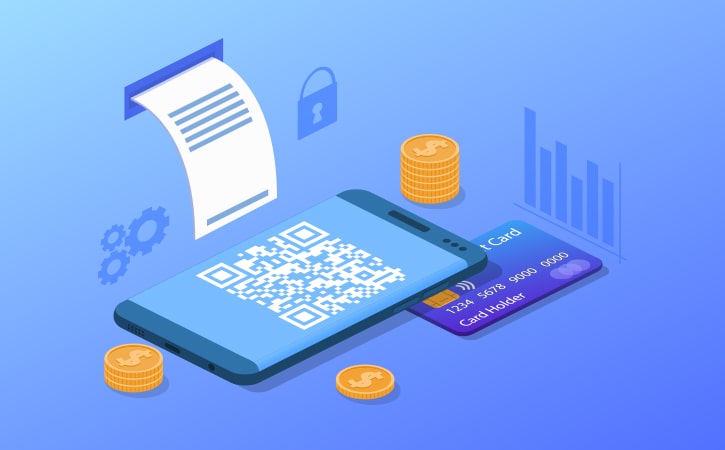Imagine if there was an app that could end all your troubles with one click. This would mean no more stressing over pending work. No deadlines breathing down your neck. No spending sleepless nights caught up with work. Well, all these may be a little too far-fetched, but the pace at which mobile app development is prospering, all this might just become a reality someday.
The sphere of mobile app development has certainly come a long way. In fact, it won’t be wrong to assume that 2019 will be the year of mobile apps since both business owners and enterprises will have more opportunities to explore.
Having said that, let’s take a closer look at some of the most promising trends that can enrich the mobile app development landscape in the long run.
- Beacons are here to stay
The Beacons technology isn’t new anymore. In fact, different sectors like Hotels, Healthcare, Museums, etc. have already implemented the Beacons technology in their systems.
So, it’s very evident that this technology has turned out to be more convenient for common users. However, their implementation will not be restricted to these in 2019. Beacons come with far greater potential than that.
For example, Beacons integrated with IoT in retail can provide users with valuable insights related to sales and other ongoing processes that they might find within their vicinity. In future, the technology is said to make way for mobile payment beacons, beacons treasure hunting, etc.
2. Wearable technology- the accessory we all need
Those days when wearables were only recognised as fitness equipment or fashion statement are passé. All over the world, organisations have begun to let their employees access crucial company information and apps through wearable devices.
In fact, we are close to the days when leading organisations will push for the WYOD (Wear Your Own Device) concept. The enterprise app development services need to focus more on wearable app development in the year 2019.
Also, mobile app developers have to stay updated about the employee’s usage pattern for wearable devices. This way, they can create an app with appropriate functionality and features.
3. Undeniable Convenience of Cross-platform Frameworks
Enterprise apps are a necessity for the prosperity of modern business. That being said, financial constraints and other limitations have prompted many business owners to sit on the fence regarding the integration of those apps. It is a well-known fact that native apps for iOS and Android nearly cost a small fortune for the organisations.
Under such circumstances, cross-platform frameworks can be useful. These platforms allow business owners to develop enterprise apps that can easily run across different devices regardless of platforms like iOS or Android. Developers can utilise these frameworks or tools to create ‘omnichannel’ apps for enterprises. The trend is only going to witness a sharp surge of popularity in the coming years.
4. On-demand apps are the new norm
The popularity of such apps is only natural considering the millennial mantra these days seems to be “I see it. I like it. I want it. I get it.” Consumers are always in need of immediate services and are willing to pay for the services. This is when an app comes to the rescue. This type of service takes care of the diverse needs of consumers. What’s more, they can access these apps from the comfort of their home, office, or literally anywhere with a functional internet connection.
On-demand apps and their development is probably the most important trend in the present business landscape. On-demand apps like food and grocery delivery, cab services, beauty services have flooded the market, and the necessity for these is increasing exponentially.
5. Adopt the new-age application Security
Mobile app security is set to be subject of debate and discussions in 2019 and beyond. Given the speed at which technology is evolving, security features will continue to encounter challenges while preventing the breach of crucial data.
Under such circumstances, encrypted messages have emerged as a potent way to safeguard application data for many apps. However, data encryption single-handedly cannot resolve the entire range of security issues with mobile apps. Self-destructive message is another pertinent way that ensured the security of data. Blockchain has come across as the most credible technology with its decentralised protocol.
6. The era of smart things is here
The Internet of Things (IoT) has already crossed the threshold of interiors of our homes, and are practically found everywhere. The smart home and workplace or the smart transport with connected devices and sensors are a perfect specimen of this technology. Now, mobile apps have a defining role in connecting the dots of IoT devices and sensors to provide a smarter environment regardless of our location.
IoT is being widely implemented in academic institutions. In fact, it also helps teachers and parents to stay connected continuously. Many assignment help services have integrated this system to provide seamless assistance to students.
7. Minimum Viable Products are the next best thing
The days are long gone when you had to put efforts on multifaceted and feature-rich apps only to encounter performance issues. This would invariably lead to repairing the app all over again. This is why creating a basic and lean app in the initial stages and then refining it with additional features over time is considered a more efficient and pragmatic approach. It’s called a Minimum Viable Product (MVP).
In the coming years, MVP will be more efficient, owing to its simplicity, and benefits of faster development. There is very little scope for you to go wrong when you emphasise on the basic app version with the bare minimum features. Once you launch the app and analyse it, you can make it better with the latest additions.
8. Unleash abundant potential with APM and EMM
APM (Application Performance Management) is a kind of mobile metrics that was integrated into Google. It was implemented to eliminate the glitches and other issues that slowed down the app’s performance. It enhances the quality of the app and boosts its performance. In fact, it is one of the essential tools used by quality assurance testers during app testing.
Similarly, the EMM (Enterprise Mobile Management) involves both the people as well as technology. It assists in mobile computing to simplify business processes. This technology comes with app security, maintaining the application, and managing finance.
Winding it up,
Mobile apps have become a constant companion for us. Be it for shopping, booking tickets, ordering food/cab, banking, the dependence on mobile apps have escalated to a humongous level. This is an indication that the trends of mobile app development show no sign of slowing down.
While trends may come and go, the app developers have to keep a close watch on the trends that can redefine the realm of app development. That way, they would be able to implement the changes and offer optimum user experience.




